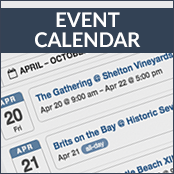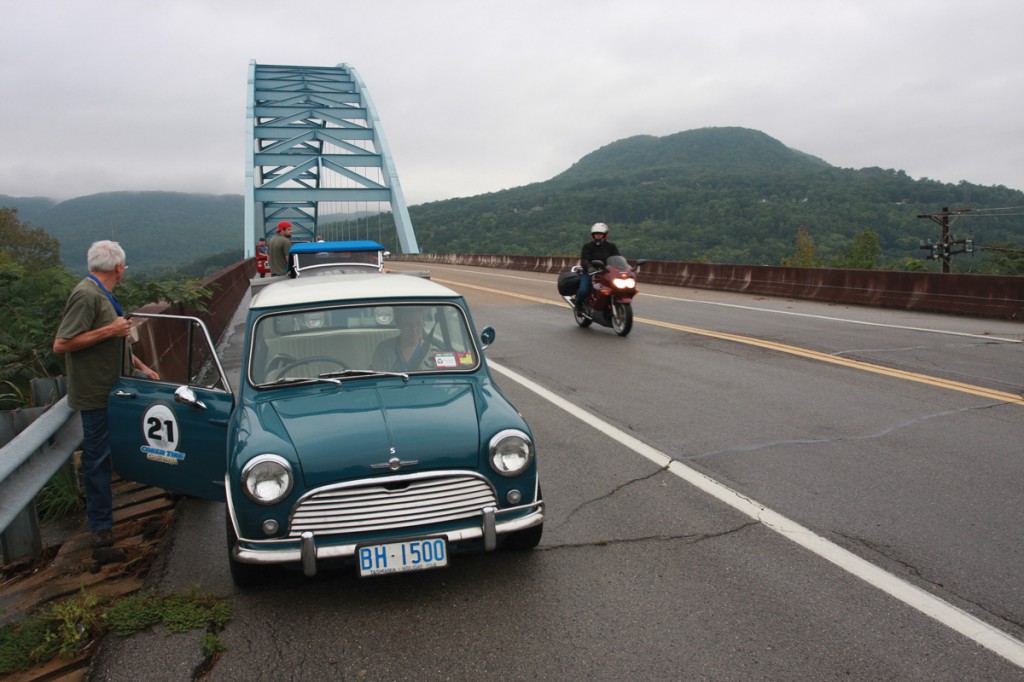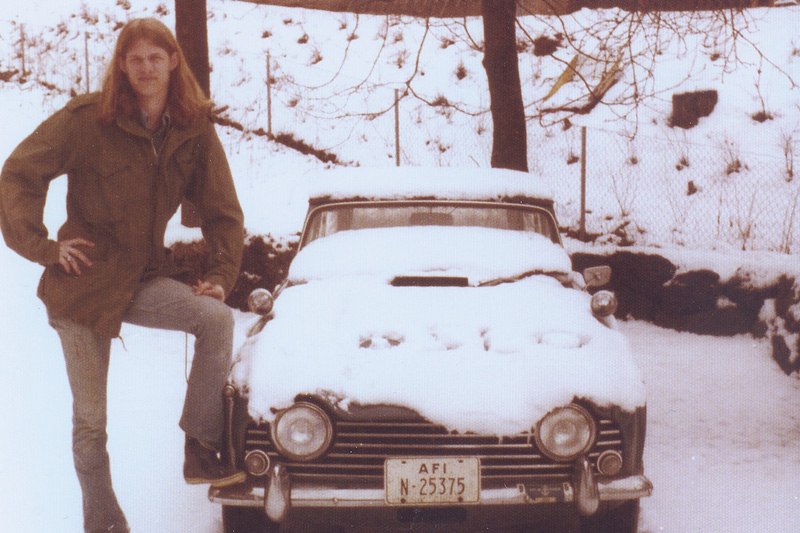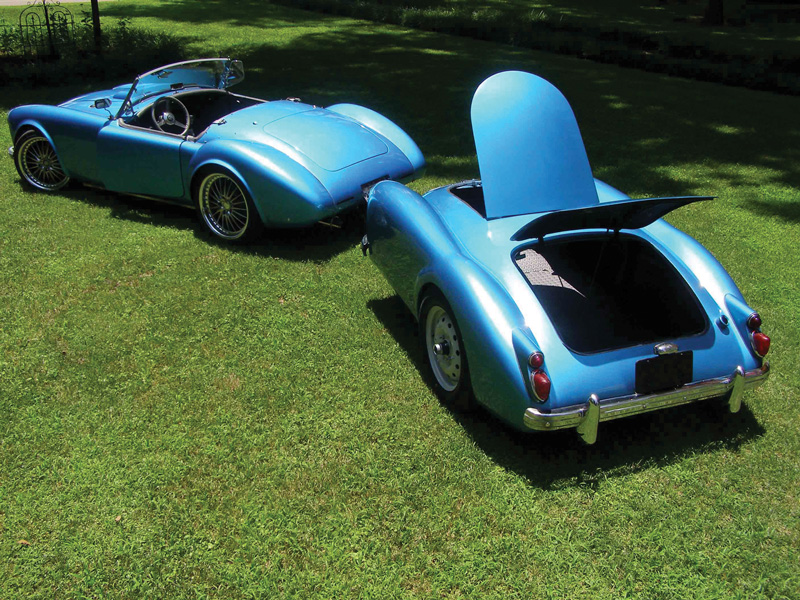Participating in some kind of motorsports usually requires specialized equipment ranging from special tires to a fully prepared race car. There is a way, however, to compete without any car prep: enter a road rally.

Teams line up at the start of a timed stage; each car gets a specific starting time. Drivers need a navigator who is organized, good at math calculations and a team player.
This is an event held on public roads in which a driver and a navigator must follow a set of instructions to complete a course as close to a predetermined time as possible. Of course, they do not know what that time is until they reach the end of the stage (one leg of the event), so only by precisely following the directions can teams score a perfect time. They also need to stay on course, as getting lost can greatly derail an otherwise well-run event.
Rallies like this—called TSD (Time, Speed, Distance) events by most organizers—take place all around the country on any given weekend. You may have passed one in progress and never known it since participants simply mind their own business while traveling along. Road rallies have been known to penalize traffic law infractions.
TSD rally contestants follow a course and average speed laid out by the rallymaster, hoping to arrive at predetermined check points at the correct moments. Penalty points are assessed for arriving early or late, as this type of motorsport rewards consistency, timekeeping skills, math and teamwork.
The designated speeds are almost always at or below the posted limits, although they don’t always consider physics. For example, the rally instructions might specify that teams accelerate from 25 mph to 50 mph at a certain point along the route. The teams are responsible for figuring out exactly when to start accelerating so they maintain the average speed specified by the route instructions.
Likewise, the instructions might give teams 15 seconds to pause for a stop sign. Each team must figure out precisely when to accelerate away from that stop sign, however, as few if any cars can instantly go from a standstill to cruising speed.
Not all of the ground covered during the route is scored. In addition to the timed stages—the ones where teams are penalized for arriving early or late—most rallies usually start with a calibration leg. This gives teams a chance to compare their speedometer to the official one. Finally, unscored transit stages are sometimes used to move teams from one timed stage to the next.
Some clubs run what is called a gimmick rally, which may take the form of a scavenger hunt or poker run. These events usually do not require the sophisticated timekeeping skills of a TSD rally but still reward teamwork, map skills and a bit of ingenuity.
Road rallying requires very little if any equipment to get involved. Teams are usually divided into classes depending on what timing equipment they are using—those using rally computers and timers are in one class, and those with less sophisticated equipment (pencils and paper) are in another.
Show up at your first event with a decent stopwatch, working odometer, pencils and paper, and a bag lunch, and you should be okay. Talk to other competitors to see how they do it. Some events are run at night, so you may want to invest in a quality map light and some auxiliary driving lights to make it easier to read the signs.
Road rallies are just another fun way to play with cars—plus it’s a bit nostalgic, as it’s how many enthusiasts first got involved in motorsports. Because a TSD rally tests and rewards teamwork, it can be a good relationship gauge or builder for those considering marriage or other partnership.
What you need:
• A comfortable, street-legal car
• A working odometer, pencil, note pad
• A team partner
• Basic math skills
Find An Event
Several groups, both rally groups and traditional sports car clubs, host TSD rally events. Even if a club isn’t dedicated to a British marque, they might allow visitors to participate in their TSD rally.
• Sports Car Club of America: www.scca.com
• TSDRoadRally.com: www.tsdroadrally.com
• Vintage Car Rally Association: www.vintagecarrally.com
• Local sports car and marque clubs
TSD Rally Preparation
While road rally events don’t place severe stresses on vehicles, they are often all-day affairs. In other words, cars must be ready to face a day—or maybe even more—out on the roads.
Here’s a checklist:
Tires: Are they safe and free from defects? Do you have a good spare?
Brakes: More than once you’ll probably have to come to a short stop. How are the fluid, lines, pads, shoes and master cylinder?
Weather protection: Most rallies are held rain or shine. How are your top, window seals and side glass?
Lights: You’ll be sharing the road with the public, so good lights and signals are paramount.
Seats: How comfortable are your seats? Is now a good time to recover them or replace the foam?
Battery: The day will be broken up into sections. Can your battery handle multiple restarts?
Engine: If the car is not running smoothly or has some quirks, perhaps it’s time for a real tune-up.
Body: If any missing seals are allowing the engine’s heat and fumes to enter the cockpit, replace them now.
Oil and gas: Start the day with a full tank of gas, and make sure the oil level is correct.
Suspension: If things are clunking around or just acting weird, might as well make the fixes before heading off.
Windows: Are the windows filthy, or do they offer a nice, clear view of the world?
Speedometer and odometer: You’ll have to calibrate yours against the rallymaster’s, but non-working equipment will leave you high and dry.
Safety: Each club has its own specifics, but some require teams to carry safety flares, a tow rope and a fire extinguisher.
Rally gear: Don’t forget to bring pencils, note paper, a clip board, and a working watch or clock. You don’t need a fancy timepiece, and you usually have a chance to calibrate yours to the official rally time.
Snacks and water: You might not have time to grab a snack while on the road, so pack some snacks and something to drink. Remember, no one wants to ride along with a crab.
Story and photos by David S. Wallens








'TSD Road Rallies – Arrive on Time' has 1 comment
January 8, 2013 @ 6:00 am Charles Hanson
Very nice article. Sports Car Club of America is the premier organizer of these events and would like to emphasize that we are inclusive of everybody. Membership is nice, but not a requirement.
There is an old joke “Discover America – Get Lost on a Rallye.” We really do try to write our route instructions to minimize the possibility of your getting lost, but it does happen. Fortunately, with cell phones and GPS, we can usually get you back on course. And it is on course where we will help you Discover America.